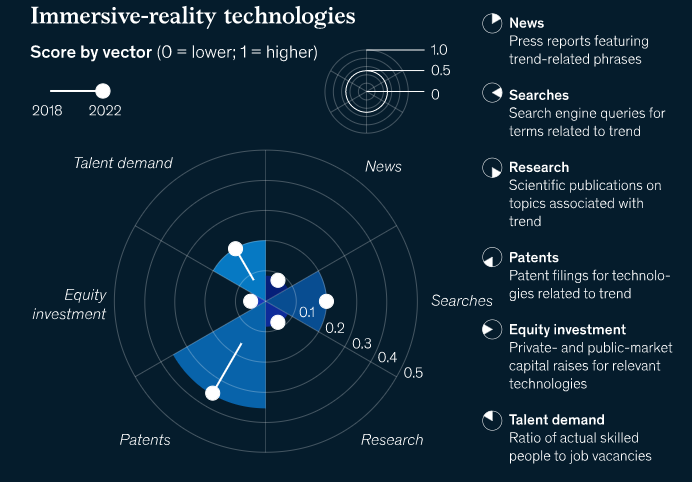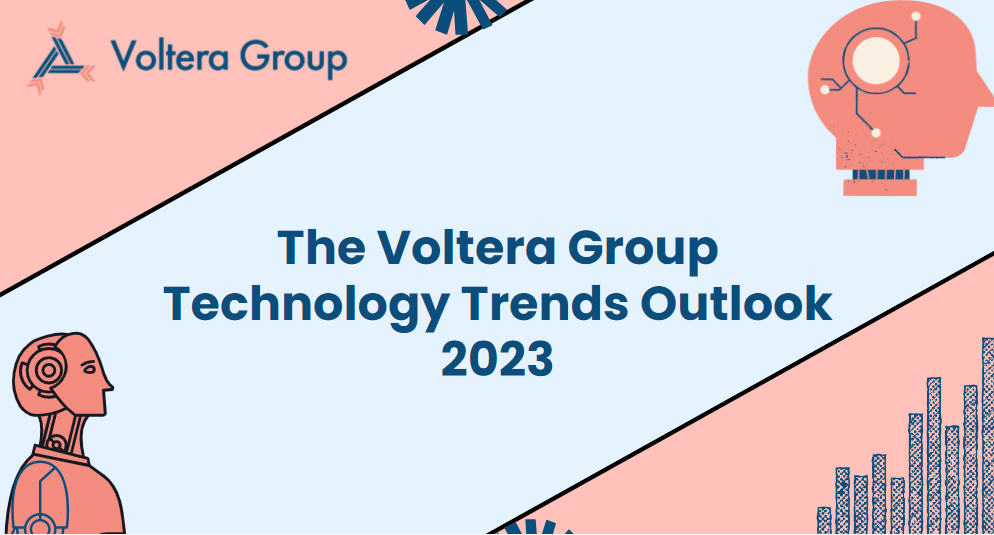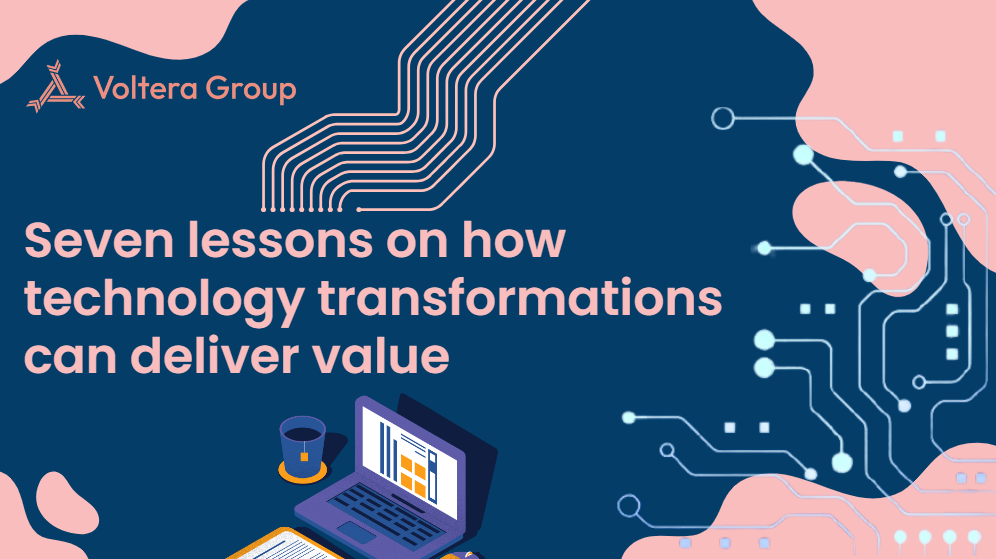The Voltera Group Technology Trends Outlook 2023 offers an in-depth analysis of the most significant technological advancements shaping industries across the globe. From artificial intelligence (AI) and quantum computing to the rise of next-gen materials, the report outlines key trends that business leaders and innovators need to closely watch.
These emerging technologies are not only reshaping industries but also creating new opportunities for growth and transformation. Here are the major takeaways from The Voltera Group’s 2023 report.

Artificial Intelligence and Machine Learning: Moving from Hype to Impact
Artificial Intelligence (AI) continues to dominate the tech landscape in 2023, but the emphasis has shifted from speculative potential to tangible impact. AI is now driving real, measurable value across industries like healthcare, finance, and manufacturing.
Generative AI: One of the standout developments is generative AI, which powers tools capable of creating original content. Companies are increasingly leveraging generative AI for tasks such as product design, content creation, and software development, streamlining operations and improving customer experiences.
AI democratization: The democratization of AI tools is empowering smaller businesses and individual developers to harness AI’s potential. This trend is expected to continue, with more accessible AI solutions becoming available to a broader range of industries.
Companies adopting AI early are reaping significant benefits, from process automation to predictive analytics, helping them stay ahead in highly competitive markets.
Quantum Computing: On the Horizon
Quantum computing remains a topic of great interest and investment, though it’s still in its early stages. The Voltera Group report suggests that quantum computing is on the verge of revolutionizing industries by solving complex problems beyond the reach of classical computers.
Industries affected: Quantum computing could accelerate drug discovery in pharmaceuticals and optimize supply chains in logistics in ways never before possible.
Challenges ahead: While the promise of quantum computing is immense, there are still significant technical and infrastructural challenges to overcome. It could take another 5 to 10 years for quantum computing to mature fully, but companies are already investing to gain early insights.

Cloud and Edge Computing: Decentralizing Data
The shift to the cloud is accelerating, but edge computing—processing data closer to where it’s generated—has emerged as a key trend. The combination of cloud and edge computing is unlocking new possibilities for industries like IoT, autonomous vehicles, and real-time data analytics.
Cloud-native applications: Businesses are increasingly adopting cloud-native architectures that allow them to be more flexible and scalable, enabling faster product development cycles and improved efficiency.
Edge intelligence: With the rise of 5G and IoT devices, edge computing is crucial for applications requiring low latency and high bandwidth. For example, autonomous vehicles rely on edge computing to process data in real time without relying on distant data centers.
By 2025, edge computing is expected to have a significant impact on industries that require real-time processing of large amounts of data, particularly in smart cities, retail, and industrial automation.
Next-Gen Materials and Energy Solutions
Another emerging trend is the development of next-gen materials and sustainable energy solutions. These advancements are critical as industries seek to reduce carbon footprints and embrace sustainability.
Sustainable materials: Advances in materials science are leading to the creation of more durable, lightweight, and sustainable materials. Industries like automotive and aerospace are benefiting from these innovations, allowing for more efficient vehicles and airplanes with reduced environmental impact.
Clean energy technologies: Green hydrogen, advanced batteries, and renewable energy solutions are rapidly evolving to meet the demand for sustainable energy. Companies adopting these technologies are positioning themselves as leaders in the shift toward a low-carbon economy.
Energy storage solutions, driven by advancements in battery technologies and increased investment in renewable energy infrastructure, are poised for substantial growth.
Cybersecurity and Digital Trust
As digital transformation accelerates, cybersecurity becomes a growing concern. Companies must invest in digital trust to protect sensitive data and ensure secure digital transactions.
Zero trust architecture: The adoption of zero trust models is becoming a necessity as companies move to hybrid and remote work environments. These models assume that no device or user is automatically trusted, even within the organization’s network.
AI in cybersecurity: AI is playing an increasingly important role in identifying and mitigating cyber threats in real time. With the rise of sophisticated cyber-attacks, AI-driven security solutions are essential for defending against evolving threats.
The demand for cybersecurity solutions will continue to rise as businesses look to protect both their digital assets and customer data.





